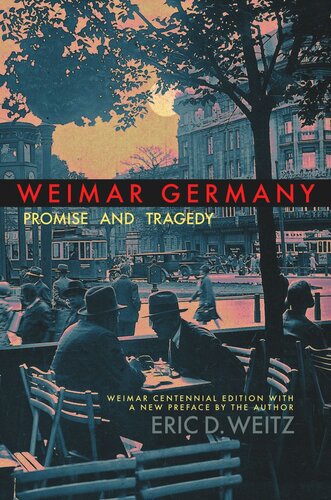

Most ebook files are in PDF format, so you can easily read them using various software such as Foxit Reader or directly on the Google Chrome browser.
Some ebook files are released by publishers in other formats such as .awz, .mobi, .epub, .fb2, etc. You may need to install specific software to read these formats on mobile/PC, such as Calibre.
Please read the tutorial at this link: https://ebookbell.com/faq
We offer FREE conversion to the popular formats you request; however, this may take some time. Therefore, right after payment, please email us, and we will try to provide the service as quickly as possible.
For some exceptional file formats or broken links (if any), please refrain from opening any disputes. Instead, email us first, and we will try to assist within a maximum of 6 hours.
EbookBell Team

0.0
0 reviewsThoroughly up-to-date, skillfully written, and strikingly illustrated, Weimar Germany brings to life an era of unmatched creativity in the twentieth century—one whose influence and inspiration still resonate today. Eric Weitz has written the authoritative history that this fascinating and complex period deserves, and he illuminates the uniquely progressive achievements and even greater promise of the Weimar Republic. Weitz reveals how Germans rose from the turbulence and defeat of World War I and revolution to forge democratic institutions and make Berlin a world capital of avant-garde art. He explores the period’s groundbreaking cultural creativity, from architecture and theater, to the new field of "sexology"—and presents richly detailed portraits of some of the Weimar’s greatest figures. Weimar Germany also shows that beneath this glossy veneer lay political turmoil that ultimately led to the demise of the republic and the rise of the radical Right. Yet for decades after, the Weimar period continued to powerfully influence contemporary art, urban design, and intellectual life—from Tokyo to Ankara, and Brasilia to New York. Featuring a new preface, this comprehensive and compelling book demonstrates why Weimar is an example of all that is liberating and all that can go wrong in a democracy.